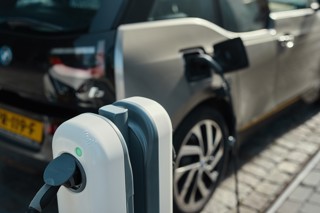The future of the plug-in car and van grant is expected to be revealed by the Chancellor in the Budget in March.
The electric car and van subsidy was cut in 2018 by £1,000 and fleets were told it would no longer apply to hybrid cars with a range of less than 70 zero emission miles.
The Government said the reduction in funding - from £4,500 to £3,500 - for the cleanest cars, and withdrawing the grant completely for the likes of the Mitsubishi Outlander PHEV and the Toyota Prius Plug-in, was a sign of its success.
Talking to delegates at the ICFM’s annual conference last summer, deputy head of the Office for Low Emission Vehicles (OLEV), Phil Killingley, acknowledged that incentives will be of continued importance beyond 2020, but stressed the detail was still being “talked through”.
Meanwhile, the Treasury told the Telegraph this week that “consumers incentives will continue to play a role beyond 2020”.
A Whitehall source said: “We have always said we would phase out the subsidies gradually, but there are other ways we can help people to go electric.”
BVRLA chief executive, Gerry Keaney, says that the Budget on March 11 will be an opportunity to set the tone for a new decade in which the transition to decarbonised road transport will be won or lost.
“Fleets are being asked to invest billions of pounds in new electric vehicle technology and infrastructure, which comes at a hefty price premium to its petrol and diesel alternatives,” he said.
“To achieve these goals the Government must provide a clear support package through to at least 2025. It must preserve the Plug in Car and Van Grants, maintain a strong set of tax incentives and tackle the huge and often arbitrary costs associated with fleet charging infrastructure.”






















The Engineer - 09/02/2020 20:00
In the grand scheme of things, this subsidy bill is small chips (compared to HS2 which will benefit just a few hundred commuters a day!) but it took the edge off many lease costs making take up for many drivers within reach, it should be increased not reduced! it should be reinstated for PHEV's too because it made huge inroads into making people consider alternative drivetrain systems for the first time dispelling the myths of milk floats. But there is a long way to go yet. Ultimately it would be more benefit to us all than a 20 billion bridge from Scotland to Ireland!